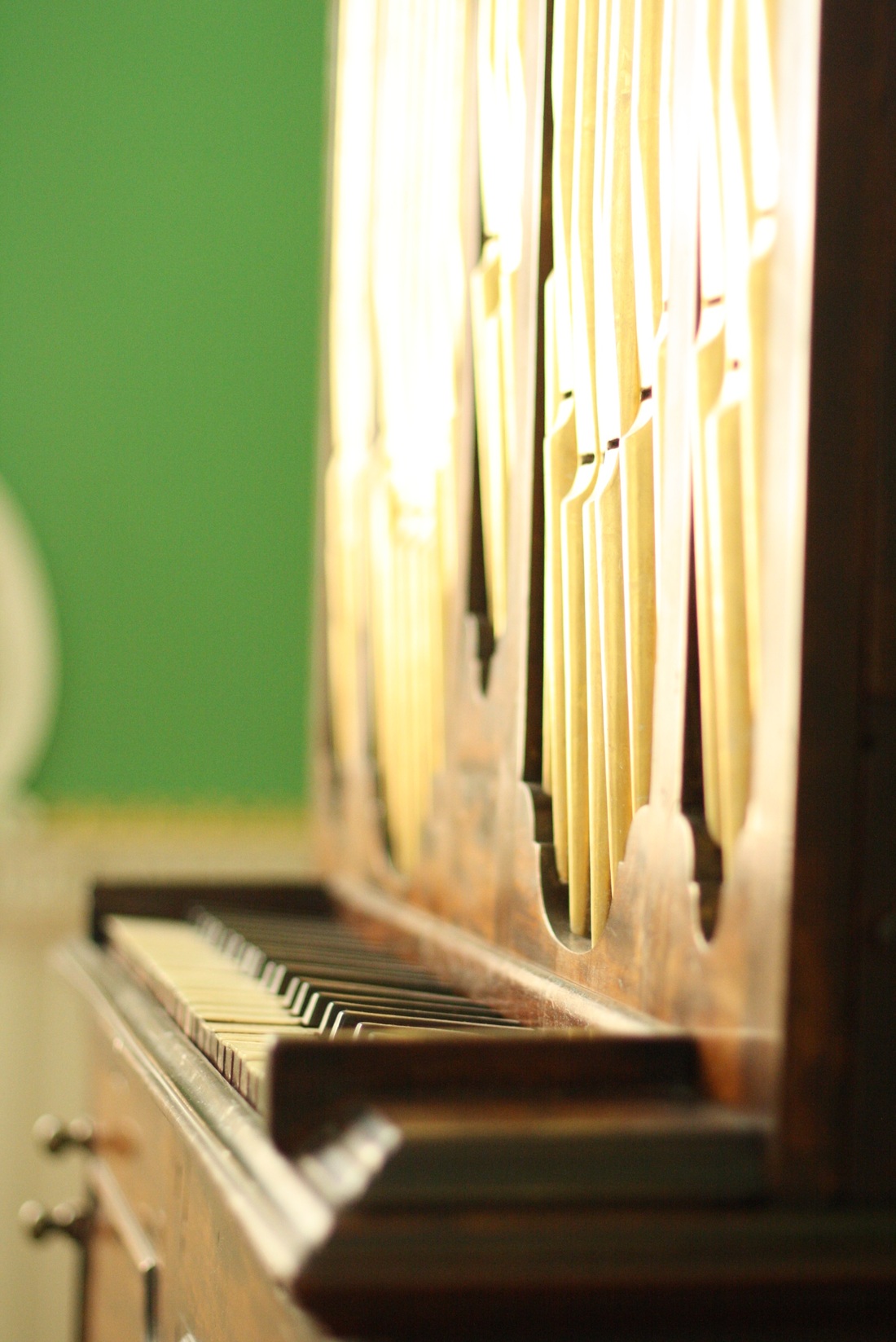| I used to write music. I went to a Composer's Camp for children every year for three years. It wasn't as big of a deal as it is now. Now the camp is huge and get decent breakfasts. Back then, we got handed a Honey Bun from one of our professors and told "When you get to Heaven, they give you Honey Buns. That's how you know you've made it to the right place." That professor was dead when I went back to visit for our ten-year reunion. I used to play music. My mom started me on the piano when I was five, because her mom had started her on the piano when she was four. It was a rainy Wednesday in March and I was in kindergarten. I hopped out of the Taurus and rushed through the puddles to get to the house of the old lady who would later watch the Reagan funeral over my head while I played my scales for her. I used to sing. In high school, that's what everyone thought I was going to do, go sing and be famous on Broadway. I got the leads, I got the solos, and I got into the National Choir in Los Angeles. But I didn't go, because I was contracted as a choir girl in the city Opera and they said they'd never hire me again if I went. So I stayed in the Opera, my choir teacher hated me for it, and I didn't get another solo. It didn't matter anyway. The only way I could get through an art song is if I put a story behind the four pages of notes. I would act out the heartbreak of Sally the Runaway when Mr. SuchnSuch would make me sing Shennandoah, and I would definitely need to understand the characters of Carmen and Dido to get an aria to mean anything. Without the story, I didn't care about the song. I used to compose. I used to play. I used to sing. Now I don't do any of these things; I mean, I'm currently working on imitations of every Disney heroine for a YouTube video I will never record. But other than that, music and I are the two best friends who went our separate ways but miss each other very much. But I loved writing more. I write every day, and I had to learn how to write better. Opera stars have a passion deep down in the center of their hearts for music. For me, the music was always about the story, not the notes. Music was a way to get the writing across. And so music and I have found a new way to love each other. I was thinking about all of this as I sat down for my revisions of my book this weekend. For my birthday, I got fifteen bucks to spend at the iTunes store, so I carefully picked out music that sounded like my characters. Playlists have always been a huge thing that I do in order to plot their arcs. In college, my best friend and I used to make playlists for each others' projects, like our books had movie soundtracks. Somehow it was easier for me to work out the kinks in my story through songs than sitting down and staring at the words. I decided on The Giver score for this project. It was a small choice, but when I went into the writing, it wasn't just words I was struggling with and had been struggling with for a month now. No, it was alive. I saw them all standing around on this airship, realizing they were going to have to say goodbye to each other. The war is over, and if they return home, they'll lose this family they've woven together. Run. We have to run. I used to be a musician. I think I still am. If I wasn't, I don't think I could be a writer. Just like if I wasn't a writer, I wouldn't have been a musician. |
|
0 Comments
|
What is this?Dawson is a writer. This is her blog. In it, you shall read about reading. And writing. And cheeseburgers. Sometimes there are tangents. Huzzah. Categories
All
Archives
May 2019
|



 RSS Feed
RSS Feed